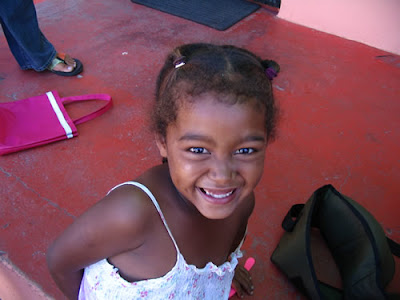Roseto, a little Italian community in Pennsylvania in the 1960’s, had no suicide, alcoholism, drug addiction and very little crime. No one was on welfare or had ulcers.

The death rate from heart disease was about 50% lower than expected. In fact the death rate from ALL causes was 30%-35% lower than the United States as a whole.
I’m reading “Outliers” by Malcolm Gladwell (a book about the unexpected pattern behind success) and it talks about Roseto. They couldn't figure it out!
At first they wondered if it was diet – perhaps the Rosetans were using some healthier Old World cooking practices? But they discovered they used just as much lard, sugar and fat as the average American. They didn’t exercise particularly much, smoked and struggled with obesity.
Then they looked into genetics – thinking that perhaps they all came from a hardy stock that protected them from disease. Not the case – as other decedents from the same town in Italy who did not settle in this little Roseto were not as healthy as their Rosetan cousins.
They also considered the possibility that maybe there was something special about the foothills of eastern Pennsylvania that was good for health. Another dead-end – as near-by towns did not have the same glowing health records.
After a while they realized it was the town itself.

“What (they) began to realize was that the secret of Roseto wasn’t diet or exercise or genes or location. It had to be Roseto itself. As (they) walked around the town, they figured out why. They looked at how the Rosetans visited one another, stopping to chat in Italian on the street, say, or cooking for one another in their backyards. They learned about the extended family clans that underlay the town’s social structure. They saw how many homes had three generations living under one roof, and how much respect grandparents commanded. They went to mass at Our Lady of Mount Carmel and saw the unifying and calming effect of the church. They counted twenty-two separate civic organizations in town of just under two thousand people. They picked up on the particular egalitarian ethos of the community, which discouraged the wealthy from flaunting their success and helped the unsuccessful obscure their failure.”
They didn’t have any less stress or problems than anyone else – they just had each other. Community in the truest sense produces better health and life expectancy than good diet, exercise or genes.
I was fascinated. I had to know more!
I researched the current status of Roseto and found that after interviewing town citizens in the 1960’s, researchers predicted the town would change, as the youth at that time had more “modern” ideas.
The town did change. Unfortunately.
The people of Roseto don’t go to church as much, stopped naming first born children after grandparents, put older people in nursing homes (instead of keeping them with the family), and are no longer concerned with hiding wealth and bought flashy cars.
Essentially selfishness was killing them. Literally.
Who has time to go to church? Who has the energy to take care of aging family members? Who doesn’t want to show off with a few impressive possessions?
Roseto makes me think of Africa townships.
There certainly is a sense of community here – people don’t hesitate to invite you into their home. It’s not unusual to find three generations living together. And they all seem to go to church.
But something’s missing. The death rate and level of disease is horrific, and crime is off the charts.
The family structure here has completely fallen apart – and I think that’s the key. Family.
Rosetans had family. Real deal family. Not just the basics – mothers and fathers (most homes here do not have both parents) – but grandparents – and essentially a whole neighborhood that functioned like family.
That’s what I want.
We are learning to live in community here at All Nations –this close knit group of strangers from all over the world. There is something to be said for cooking together, cleaning together, playing together, praying together and working together. Being family.
I want to have this lifestyle of “family” – wherever we go….making strangers feel like neighbors….making relationship more important than accomplishment…making time for the seemingly unimportant. I think this is what Jesus did all the time.

It seems family is better than vitamins, gym memberships and perfect genes. Huh!
 The day before we heard about that, Jackson (6 years old) came down from his room holding three of his wild animal cards. He had sorted out the ones that could be found in South Africa and announced with some worry in his voice that, “These are the three animals that could EAT Karl and Julie!”
The day before we heard about that, Jackson (6 years old) came down from his room holding three of his wild animal cards. He had sorted out the ones that could be found in South Africa and announced with some worry in his voice that, “These are the three animals that could EAT Karl and Julie!” 











